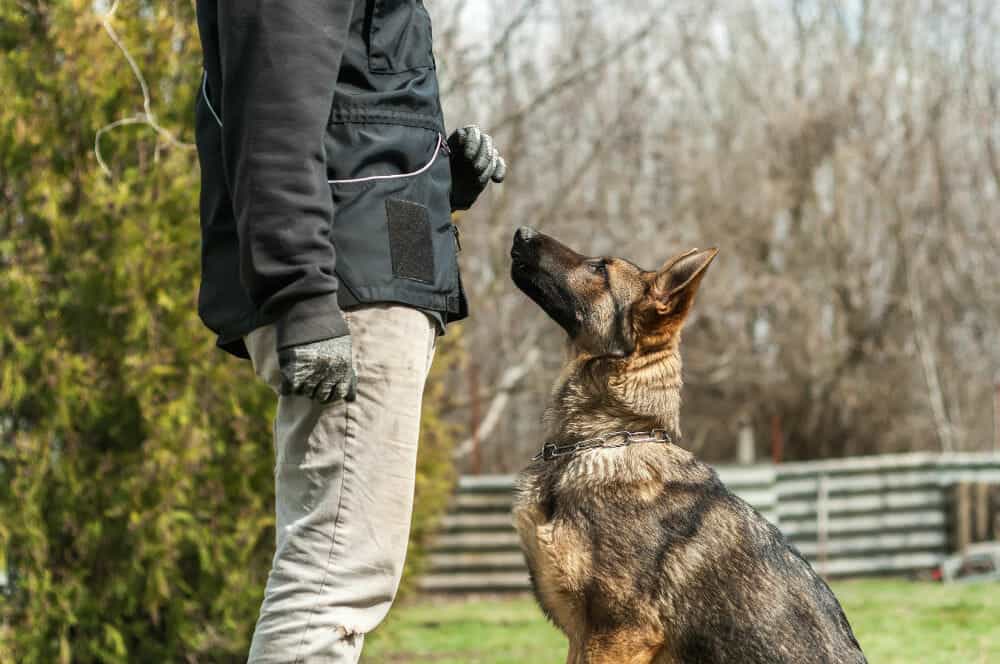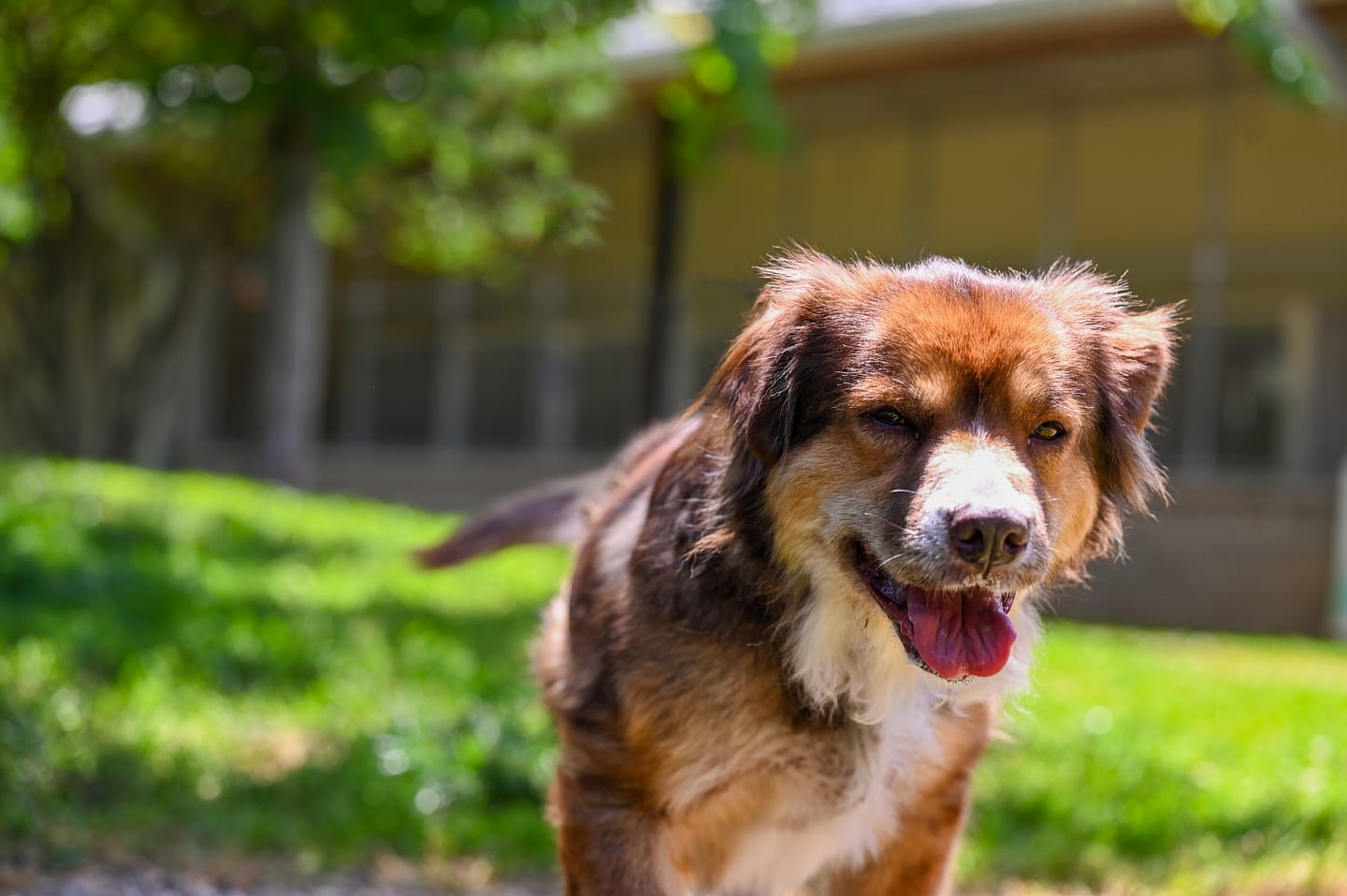Necessary Methods for Efficient Dog Training You Need to Know
Necessary Methods for Efficient Dog Training You Need to Know
Blog Article
Important Tips for Effective Dog Training: An Overview for Pet Owners
Effective dog training is a complex process that requires a critical method tailored to both the pet dog's character and the proprietor's goals. Comprehending just how to browse these obstacles can considerably improve the training experience, ultimately changing the connection between proprietor and pet dog.
Comprehending Dog Habits
Understanding pet behavior is crucial for efficient training and fostering a harmonious relationship between canines and their proprietors. Pet dogs interact mainly with body language, vocalizations, and activities, making it vital for proprietors to analyze these signals properly. Recognizing a pet dog's position, tail position, and ear orientation can give understandings into its mood. A wagging tail does not always indicate happiness; it can additionally indicate exhilaration or anxiety.

Socialization plays a considerable duty in pet actions; exposure to numerous settings, people, and various other pets can dramatically influence a dog's character. Variables such as type characteristics and specific character should guide training methods, as some types may have certain behavioral characteristics that demand tailored strategies. By comprehending these elements, owners can develop a supportive setting that urges favorable habits, leading to successful training results and a much deeper bond with their pet dogs.
Establishing Consistent Commands
Reliable interaction with your canine starts with developing constant commands. This fundamental component of training is critical for promoting understanding between you and your family pet. Consistency in the commands you use makes sure that your dog can accurately associate details words or expressions with the desired habits.
When picking commands, pick clear, unique words that are very easy to say and distinguish from one an additional. Prevent making use of similar-sounding commands that may puzzle your pet dog. As an example, utilizing "rest" and "stay" is appropriate, but "rest" and "hit" might cause misconceptions.
Furthermore, preserve the very same tone and volume for each command. Pets are delicate to singing signs, so varying your tone can develop confusion.
It is just as essential to ensure that all relative get on the very same page relating to the commands used. A united front in command use will protect against blended signals and enhance the discovering process.
Positive Support Techniques
The power of favorable support in canine training hinges on its capability to urge preferred habits with rewards and praise. This technique is grounded in the concept that habits adhered to by desirable end results are more probable to be duplicated. By incorporating positive reinforcement into your training regimen, you can effectively shape your pet's behavior in a positive way.
To execute positive reinforcement, it's necessary to identify what inspires your pet dog, whether it be deals with, playthings, or verbal praise. When your pet dog does a preferred action, such as sitting on command, immediately compensate them with a reward or affection. This association in between the command and the positive result enhances their understanding.
It's important Discover More Here to timing the incentives appropriately; supplying the reinforcement within seconds of the preferred habits assists your pet make the link (dog training). Additionally, uniformity is key-- guarantee that all family members utilize the same commands and reward systems to prevent complication

Gradually, you can reduce the frequency of deals with as your dog discovers the habits, transitioning to praise or periodic rewards. This approach not only fosters a strong bond between you and your dog however also promotes a positive discovering setting, making educating a delightful experience for both.
Socialization and Communication
Continually revealing your canine to a selection of environments, individuals, and various other pets is essential for their social growth. Socialization ought to begin early, preferably throughout the vital window of 3 to 14 weeks, when puppies are most responsive to new experiences. Nevertheless, older pet dogs can also take advantage of recurring socialization initiatives.
Introduce your dog to various settings, such as parks, pet-friendly shops, and metropolitan areas. This direct exposure helps them adapt to numerous stimulations, decreasing anxiety and fear reactions. Urge positive communications with various other canines and people, guaranteeing that these encounters are regulated and secure to cultivate self-confidence.
Make use of organized playdates with well-mannered canines, as this can enhance your pet dog's social skills and teach them suitable behavior. Obedience classes and training sessions likewise give excellent opportunities for socialization, permitting your canine to engage with others in a monitored environment.
Screen your canine's body movement during communications, as this will help you determine their comfort degree. Progressively increase exposure to even more tough scenarios while guaranteeing that each experience declares. A well-socialized pet is more likely to show balanced behavior, making them a pleasure to have in any setting.
Addressing Usual Training Obstacles
Every canine owner will encounter training difficulties eventually, no matter of their canine's age or socialization level. Determining typical problems such as stubbornness, distractions, and terror can help in creating effective approaches for enhancement.

Interruptions during training sessions can hinder focus. To combat this, start training in a quiet environment with minimal stimuli. Slowly introduce distractions as the pet dog ends up being a lot more efficient in commands. Short, constant training sessions are likewise reliable in preserving focus.
Terror can prevent a dog's learning procedure. Steady desensitization to the source of anxiety, coupled with favorable reinforcement, can help reduce anxiety. Perseverance is critical; never ever require a canine right into a circumstance that triggers distress, as this might aggravate the concern.
Eventually, understanding and addressing these usual difficulties with a structured method will foster an extra productive training experience, reinforcing the bond between dog and proprietor while promoting reliable discovering.
Conclusion
In recap, successful pet dog training depends on a comprehensive understanding of canine actions, the establishment of regular commands, and the application of positive support strategies. Socializing plays an important duty in establishing well-adjusted pet dogs, while dealing with usual training difficulties calls for persistence and flexibility. By executing these crucial techniques, pet dog owners can cultivate a solid bond with their canines and advertise preferable behaviors, ultimately leading to a harmonious partnership in between humans and their canine buddies.
Recognizing canine actions is essential for efficient training and cultivating an unified relationship between pooches and their proprietors.Socializing plays a substantial duty in pet dog habits; direct exposure to various atmospheres, individuals, and other animals can substantially impact a pet dog's temperament.The power of favorable support in pet training exists in its ability to encourage preferred actions through benefits and praise. By integrating favorable support right into your training program, you can properly form your pet's actions in a positive way.
In web summary, effective dog training relies on an extensive understanding of canine behavior, the facility of consistent commands, and the application of positive support strategies.
Report this page